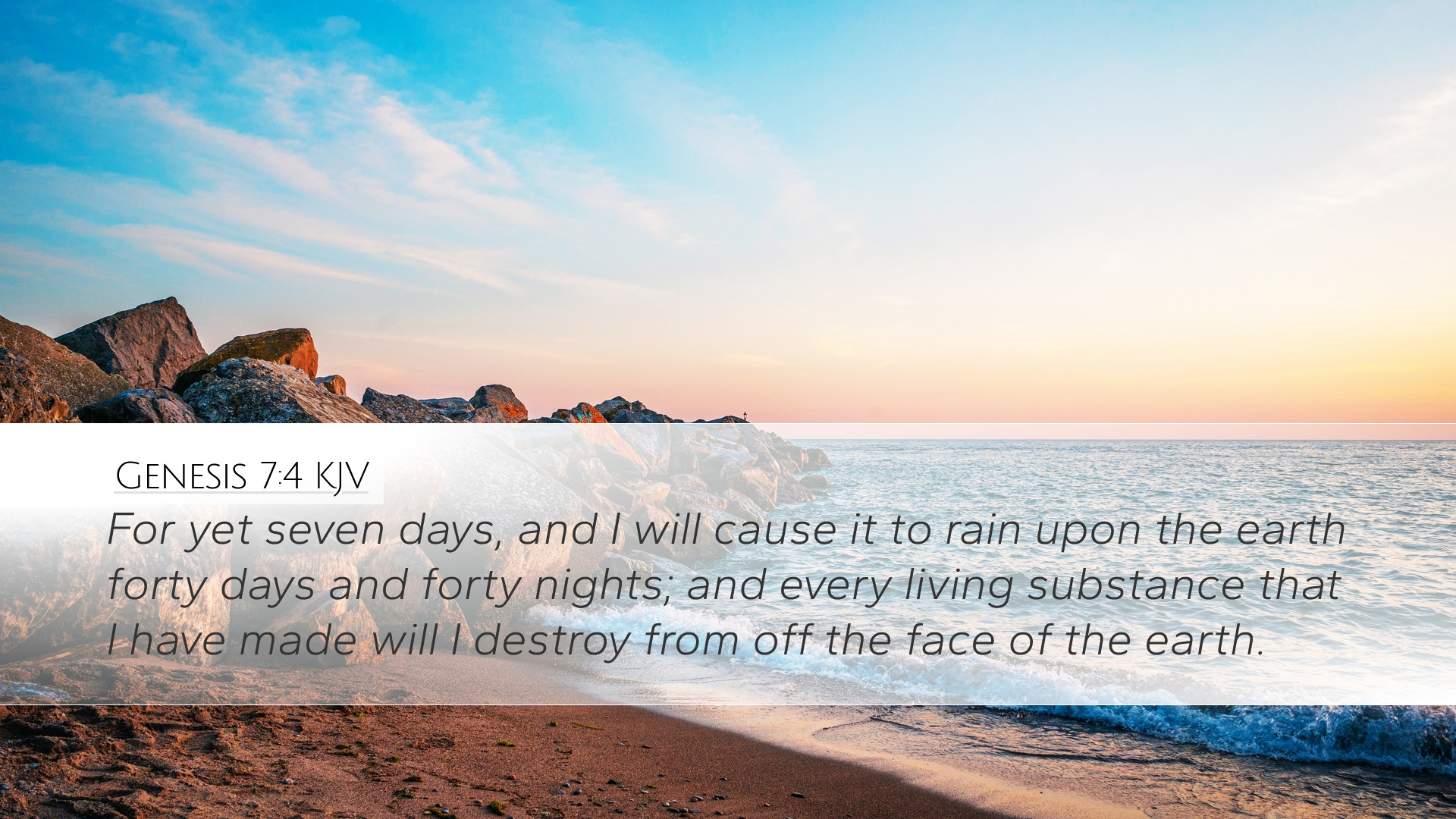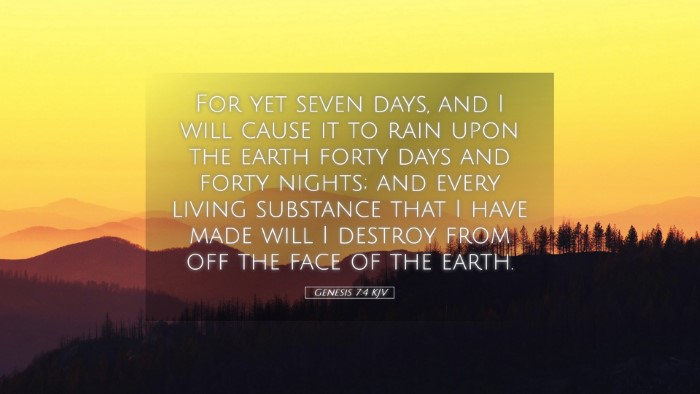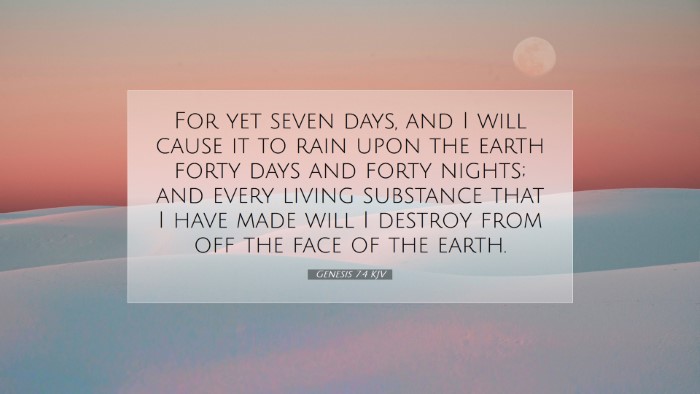Commentary on Genesis 7:4
Bible Verse: Genesis 7:4 - "For after seven more days I will send rain on the earth forty days and forty nights; and I will destroy from the face of the earth every living thing that I have made."
Overview
This verse is pivotal in the narrative of the Flood, illustrating God's imminent judgment upon a corrupt world. It details the specific act of sending rain, a decisive move that underscores the serious nature of God's decree against humanity's sinfulness. This commentary gathers insights from several public domain sources, providing a nuanced understanding of the verse and its theological implications.
Contextual Background
Genesis 7:4 comes in the context of the grand narrative of creation, fall, and redemption. It marks a transition from God's grace toward humanity to His righteous judgment. The preceding chapters detail the situation on earth prior to the Flood, where violence and corruption reigned (Genesis 6:11-12). God's decision to flood the earth is presented as a response to this pervasive wickedness, and Noah's obedience stands in stark contrast as he prepares the ark as commanded.
Theological Insights
- Divine Judgment: This passage distinctly signals God's judgment. According to Matthew Henry, the Flood is portrayed as a righteous act against an evil generation. It serves as a warning of God's holiness and the consequences of unrepentant sin.
- Covenantal Faithfulness: Despite the impending judgment, Albert Barnes emphasizes that the Flood also illustrates God's covenant with Noah. It showcases God's fidelity: He preserves Noah and the remnant as a foundation for the renewed creation after the judgment.
- Preparedness and Obedience: Adam Clarke notes the importance of Noah’s preparedness as evidence of his faith. The advance warning given in this verse serves as a call to repentance, despite the judgment that is to come.
Literary Structure
This verse employs a clear and stark proclamation of the event to take place, illustrating its significance:
- Time Frame: The mention of "seven more days" highlights God's patience and the opportunity for humanity to respond. God’s patience before judgment is a recurring biblical theme illustrating His mercy (2 Peter 3:9).
- The Duration of the Flood: The "forty days and forty nights" signifies a period of testing, which is a common biblical motif. Clarke reflects on the number 40 often representing divine testing or judgment, as seen throughout Scripture, including Israel’s wilderness wanderings.
- Every Living Thing: The totality of destruction indicated here reveals the extent of God's judgment on creation—a theme that reinforces His sovereignty over life and death.
Application for the Believer
Pastors and theologians can draw meaningful applications from Genesis 7:4 for modern believers:
- Awareness of Judgment: The seriousness of impending judgment serves as a reminder for believers to live righteously. The call to holiness is echoed in the New Testament (1 Peter 1:16).
- God’s Mercy and Justice: The balance between God’s mercy (in warning of judgment) and His justice (in executing it) provides a comprehensive understanding of God’s character—encouraging believers to trust in His righteous plans.
- Faith in Action: Noah's example encourages believers to act in faith even when circumstances seem contrary. His preparation of the ark signifies proactive faith, challenging believers to engage in their spiritual disciplines and community outreach as they await Christ’s return.
Conclusion
Genesis 7:4 is a profound reflection of God’s nature as both Judge and Savior. Through a combination of literary, contextual, and theological insights, this verse invites deep contemplation for pastors, students, and scholars alike. The nuances surrounding the expectation of the Flood carry a timeless message regarding accountability, faith, and God's overarching sovereignty.


